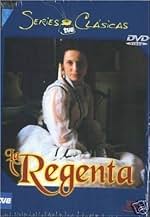What at first sight seems to be a typical 19th century love story turns out to focus rather on more or less allegorical social criticism than on mere emotionalism. But to become aware of this you have to familiarize yourself with Spanish history. Orphan female protagonist Ana Ozores, the most beautiful woman of northern Spain imaginary province capital Vetusta, is married to elderly aristocrat don Víctor de Quintanar, who seems to prefer hunting to satisfying his young wife's emotional and spiritual needs. No wonder she's courted by two extremely ambitious men in Vetusta (evidently the pseudonym of the actual Oviedo, capital of Asturias): "Don Juan" Álvaro Mesía, politician, embodiment of libertinage and social progress, and Don Fermín, her father confessor, who symbolizes conservatism and bigotry in the Vetusta's small-minded microcosm. In the end Ana succumbs to Álvaro's charm and is unfaithful to her husband who challenges his opponent for a duel. Álvaro kills Ana's husband and leaves for Madrid, while priest don Fermín begins to despise the woman he once adored. What Ana had thought to be true love and friendship in the beginning ends with the protagonist's absolute loneliness when she notices that she had been a mere toy both to Álvaro and his political adversary Fermín - her "brother of soul": Both betrayed her confidence only in order to show off their power. Besides the story, the actors' artistic merits are notable and make this film worth seeing.





























